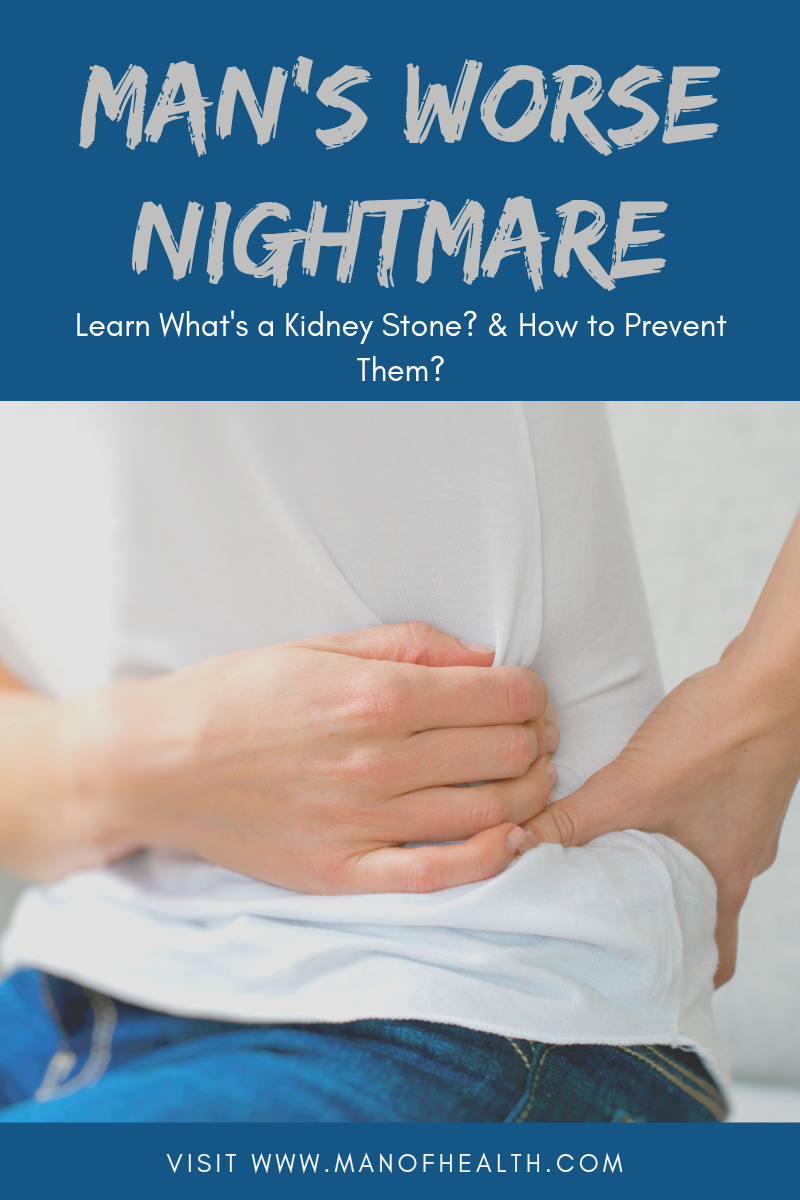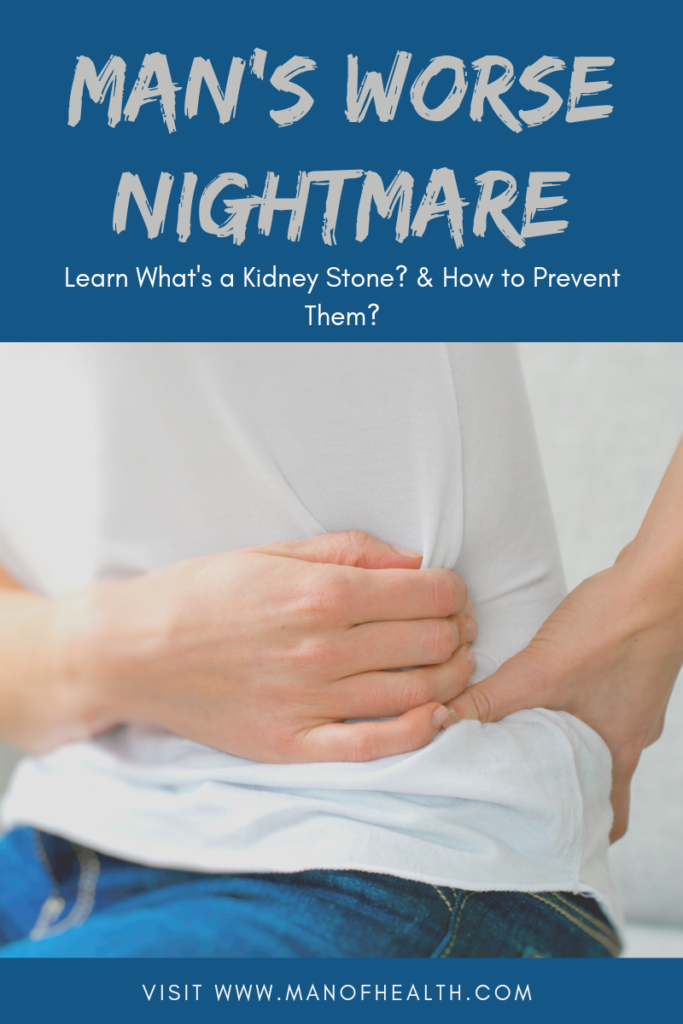
A man’s worse nightmare…What’s a kidney stone and how to prevent them?
- Post author:Christopher C
- Post published:December 23, 2020
- Post category:Physical Health

- A man’s worse nightmare is kidney stones.
Yes men kidney stones. If you have never had a kidney stone count your blessings.
I have taken care of many men who have suffered from kidney stones and it made me think…
What is a kidney stone?
What causes a kidney stone?
What are the signs and symptoms of a kidney stone?
How is a kidney stone treated?
How do you prevent a kidney stone?
I’m going to go into detail in the next couple paragraphs so let’s dive in.
What is a kidney stone?
A kidney stone is a hard stone (deposit) made of different types of minerals and salts that form inside your kidneys.
The kidneys are the bodies filtration system. When we drink something are kidneys get to work filtrating what we need in our body and excreting what we don’t need.
Nephrolithiasis is the medical term for kidney stones. Males suffer from kidney stones at twice the rate as women.
Kidney stones usually affect men between the ages of 20 to 50 and recurrence is common.
What causes a kidney stone?
As stated earlier the kidneys are the bodies filtration system, so stones form when our urine becomes concentrated. When our urine becomes concentrated it allows different minerals to stick together. This causes a stone to form.
Most stones in males are made up of the mineral calcium oxalate.
Kidney stones can also be formed due to medications and infections.
What are the signs and symptoms of a kidney stone?
Kidney stones cause severe abdominal pain. The pain is usually on one side of the abdomen.
Kidney stone may cause nausea and vomiting.
Blood in the urine and fever can also present with a kidney stone.
The type of pain and symptoms caused by a kidney stone can be affected by the placement of the stone in the urinary system.
A stone lodged in the ureters can cause pain while urinating, increase in urination, and front abdominal pain.
A stone lodged in the kidney may cause blood while urinating and side of the body abdominal pain.
How is a kidney stone treated?
The good news is 80-90% of stones pass by themselves.
The bad news is the size of the stone determines if the stone will pass.
A stone less than 5 mm (width of a pencil eraser) has the 90% chance of passing.
A stone the 6mm or greater has a less than 10% chance of passing naturally.
This means that if someone has a stone 6mm or greater they may have to have the stone removed or broken up in a hospital.
The stone can be removed by having a ureterscopy. (if the stone is in the ureter).
A ureterorenoscopy (if the stone is up higher).
The person can also have shock wave treatment to break up the stone for easier passage of the stone.
How do you prevent kidney stones?
- Prevent diseases that correlate with kidney stones: High blood pressure, fatty liver disease, and gout.
- Drink at least 2.5 liters of fluids daily. Drink 8 to 12 oz when you awaken and before you go to bed.
- Avoid soft drinks especially colas. Cola contain phosphoric acid which can create stones. Our recommended drinks are water and citric acid.
- Your urine should be clear.
- Limit animal protein, salt, and excessive vitamin c. There is no need to restrict calcium intake. This can cause other issues.
Remember to always discuss with your provider the best options for you.
Share this article if you found it interesting.
Don't forget to sign up for our newsletter to receive exclusive deals and discounts.

Share via:


